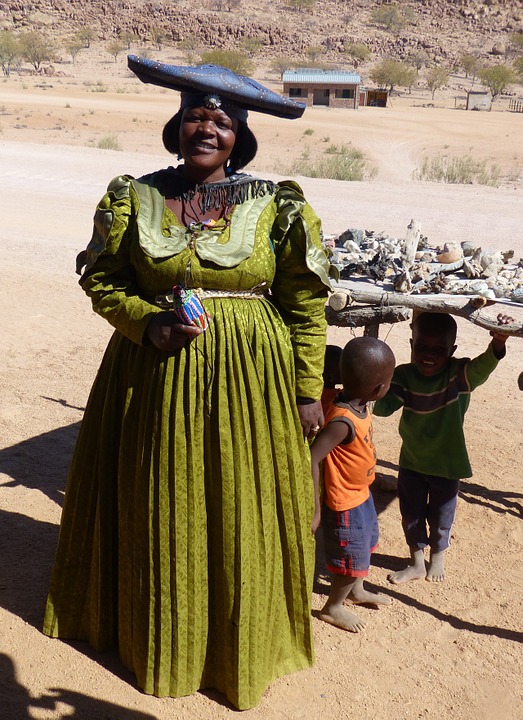Older women likewise are to be reverent in their behavior, not malicious gossips nor enslaved to much wine, teaching what is good, so that they may encourage the young women to love their husbands, to love their children, to be sensible, pure, workers at home, kind, being subject to their own husbands, so that the word of God will not be dishonored. – Titus 2:3-5
November 2018 will mark 8 years since I became a Christian. In that time I’ve been privileged to sit under a lot of godly teaching in Ghana, but no pastor in my memory ever covered Titus 2:3-5. Nor do they seem likely to given how the current Ghanaian culture glorifies women working outside the home and vilifies anyone who suggests otherwise. Time to rectify that today with two pertinent articles on the subject.
Today’s corporate women and the curse of ‘maidservanthood’
This opinion piece by Daniel Ofosu-Asamoah appeared on Ghanaweb on 17th May 2018. While it is not written from a Christian perspective, it is interesting for the unflinching look it takes at the various challenges faced by Ghanaian women in balancing working outside the home with their God-given mandate to care first for their husbands and children (Titus 2:5).
However the article contains a lot of flawed examples. Here’s one telling sentence: “The present economic situation of today does not allow one man to be the breadwinner of a family of three or four and above and reduce the woman of the house to a housekeeper.” First off, does the present economic situation really not allow men to be breadwinners? Where are the figures to back that assumption up? As Wikipedia would say, “Citation needed.” I would be genuinely interested in a comparison of the costs of living, say, 30 years ago and now to see if it’s as impossible as the writer declares.
More glaring, however, is the phrase “reduce the woman of the house to a housekeeper.” Reduce? You see the way feminism diminishes the role of a woman at home and makes homemakers feel inadequate? Why must a woman’s self-worth only come from discarding her own role and taking over a man’s? What is demeaning about caring for your own children, raising them to be godly and spiritual people, loving your own husband, managing the health, finances and food of your own home?
Especially in light of the various problems Ofosu-Amponsah raises with the opposite approach:
- No time for family.
- Active interference by maids in marriage.
- Children receiving poor care and training.
- Children picking up negative values from caregivers.
 Just the last one alone will tell you the immense value of a Christian mother in the home overseeing the development of her child. After all, if you just want to put your child through school and feed them food so they grow, anyone can do that. But if you want to counter the direction the world is going in, to raise them to love God and Christ, to believe what you believe then you have a huge task ahead of you. A task too large to outsource to random househelps, school teachers and relatives, as helpful and welcome as such people may be.
Just the last one alone will tell you the immense value of a Christian mother in the home overseeing the development of her child. After all, if you just want to put your child through school and feed them food so they grow, anyone can do that. But if you want to counter the direction the world is going in, to raise them to love God and Christ, to believe what you believe then you have a huge task ahead of you. A task too large to outsource to random househelps, school teachers and relatives, as helpful and welcome as such people may be.
It’s almost amusing but also sad how the article lists all the various problems and even adds, “When I was young, one of the momentous periods in my life was when I came home to see my mother in the house,” but never comes to the realization/admission that maybe the solution is a return to the natural order of things.
And with that, I introduce the second article I read today on the subject of Christian women and the family. It’s actually a letter by a 44-year old homemaker to a Christian radio program. The letter itself dates from 1995 but the sentiments expressed are even more relevant in 2018.
The Infiltration of Feminism in the Church
It’s a long but good read, and I urge you to pay special attention to the quote:
“A woman holding down a demanding full-time job cannot also raise her kids. It is the person who is with them all day who decides what they will read and see, how well they handle anger. Caretakers instill, bit by bit, their moral codes, their manners and even their enthusiasms. That doesn’t mean that a mother who works is irrelevant to her children – only that the major task of childrearing has been subcontracted out”.
Emphasis mine. If we don’t stamp our own imprint on our kids in their formative years, someone else will.
The article also deals with the question of guilt and the working mother. Should women feel guilty for working outside the home? That they do is evident just from a quick Google search, but should they?
“Guilt can be good if it brings to the person realization of the fact they have done something wrong.” Indeed. Guilt is bad if it is rehashing sins that have been confessed, repented of and forgiven. But if you are currently outside the will of God and you know it, you should feel bad. It’s the healthy Christian response.
We’ve seen how much the family loses by disregarding Titus 2:3-5. What does the family gain in exchange? Prestige in the world’s eyes. Work experience. Nicer houses and cars and smartphones. Money. “For the love of money is a root of all sorts of evil, and some by longing for it have wandered away from the faith and pierced themselves with many griefs.” 1 Timothy 6:10.
A mother’s role in the family is indispensable. If a worker drops dead today, there’s another person in her role the next week. I know because I saw it happen at my former workplace. “Hii, hii, oh Elizabeth!” A few days later there was an advert in the Graphic. And life went on.
“How long will you love what is worthless and aim after deception?” Psalm 4:2b.
A woman exchanging her immense contributions to her family for titles and money should feel guilty, in the same way someone who trades a gold necklace for plastic beads should feel bad.
I have more to say on this subject, particularly on the effects of these trends on Ghanaian families in particular. And of course the pressing question, “Where are the men in all this?” Join me next time for Part 2 of “The Christian woman’s role in the family” as we tackle this (needlessly) thorny and sensitive subject and look at the way forward.



